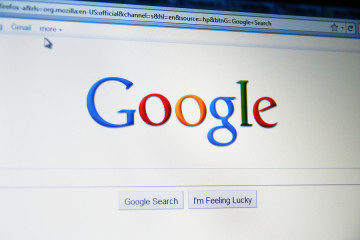How Justice Kennedy Could Give Both Parties a Win: Noah Feldman

published Oct 5, 2017, 9:56:08 AM, by Noah Feldman
(Bloomberg View) —
Justice Anthony Kennedy’s comments during oral arguments in the partisan gerrymander case, Gill v. Whitford, are fueling speculation that he might provide the decisive fifth vote for a historic decision that could reshape electoral politics. If he does, however, that could spell trouble for gay-rights advocates who also need Kennedy’s vote in the wedding cake case, Masterpiece Cakeshop v. Colorado Civil Rights Commission.
As the U.S. Supreme Court’s swing voter, Kennedy has a habit of issuing major liberal decisions alongside outcomes that read as conservative — all the while considering himself internally consistent. He’s also one of the court’s strongest voices for free speech absolutism, as his shown by his opinion conferring First Amendment rights to corporations in the notorious Citizens United case.
In both the gerrymander case and the baker’s, Kennedy could rely on free speech as the key to decision. In both instances, that would be a bit outside the box. Most analysts consider partisan gerrymandering to violate equal protection, and most conscientious objection to gay marriage today comes in claims to religious liberty. But for Kennedy, deciding both cases under free-speech terms would be precisely the appeal. It would allow him to demonstrate a kind of doctrinal consistency while reaching one outcome that will thrill liberals and another that will please conservatives.
Kennedy is already known to have entertained the original, not to say idiosyncratic view that the primary harm of partisan gerrymandering is the violation of free speech, not the equal protection of the laws.
In the 2004 case of Vieth v. Jubelirer, Kennedy wrote a concurring opinion in which he signaled that he was open to striking down partisan gerrymandering if a workable test could be found. Kennedy speculated that the First Amendment might be more useful than the equal protection clause to analyze a partisan gerrymander. Such a gerrymander, he wrote, implicates “the First Amendment interest of not burdening or penalizing citizens because of their participation in the electoral process, their voting history, their association with a political party, or their expression of political views.”
Kennedy’s idea was that when, say, Democrats are targeted by a partisan gerrymander, the state legislature doing the redistricting is penalizing Democratic voters specifically for their political association with other Democrats who share their beliefs. “Under general First Amendment principles,” he wrote, “those burdens in other contexts are unconstitutional absent a compelling government interest.”
Justice Antonin Scalia was scornful of Kennedy’s analysis. If taking account of voters’ politics in districting violated their First Amendment rights, he reasoned, then it would be equally unconstitutional for those doing the redistricting to take into account any aspect of political party affiliation. That, Scalia concluded, couldn’t possibly be correct given that redistricting is inherently political.
As Scalian rejoinders go, this was a pretty good one. In general, First Amendment doctrine doesn’t distinguish between major burdens to free speech and relatively minor ones.
Yet Kennedy didn’t back down. He insisted that free speech would only be implicated if the redistricting was used to burden a group’s representational rights. And he insisted that courts could make a “pragmatic or functional assessment” of that.
So if Kennedy is in fact poised to strike down the partisan gerrymander in the Gill case, expect First Amendment free speech to play a role.
And that will inevitably tempt Kennedy to use free speech to decide the cake baker’s case. Here, free speech also seems apart from the core issue, which is the balance between a Colorado anti-discrimination law and the baker’s religious belief that gay marriage is wrong. The main reason the case is receiving so much attention is that, nationwide, religious liberty is the rubric being used by evangelical Christians to express ongoing disagreement with the Supreme Court’s landmark gay marriage decision.
The trouble for the cake baker is that the Colorado anti-discrimination law is neutral and applies generally. That means that even if it imposes an incidental burden on the baker’s religious beliefs, it doesn’t violate the federal Constitution. And the federal Religious Freedom Restoration Act, which protects believers against such incidental burdens, doesn’t apply to state laws — because of a 1997 decision by Kennedy himself.
That means the baker’s best argument is that by barring him from discriminating against same-sex couples who are getting married, the state of Colorado is coercing him to say something he doesn’t want to say. That could take the form of an implicit endorsement of gay marriage. Or, as a friend of the court brief by wedding cake bakers suggests, it could simply derive from the fact that making a wedding cake is a form of art and that the baker is entitled to have control over his artistic expression.
I think there’s a difference between stopping the baker from discriminating and making the baker say something he doesn’t want to say. Every segregated lunch counter was trying to say something about racial inequality, but it isn’t a free-speech violation for the civil-rights laws to force integration.
As for the wedding cake, baking it could be an art. But the law doesn’t force the baker to adopt any particular design that goes against his artistic vision –- it just says he can’t refuse to bake a couple a cake on the ground that they are gay and getting married.
Yet Kennedy could reject my distinction, and hold that free speech protects the baker from making any sort of cake that carries an artistic message he rejects.
In practical terms, that wouldn’t be a huge win for evangelicals, because the holding would be restricted to professions that can credibly claim to be artistic. Other wedding vendors would still have to treat gay couples equally.
But it would be a defeat for the gay-rights movement, which is committed to fighting against the invocation of the liberty to discriminate.
Linkage between the partisan gerrymander and the bake shop cases isn’t a done deal, of course. But it’s the kind of connection that Kennedy watchers have always used to guess where he’s going. It’s far too soon to be confident, but for now, my guess is that Kennedy is preparing to make new law on the partisan gerrymander — and to deny the gay-rights movement another landmark decision in its favor to go alongside the ones he has already written.
This column does not necessarily reflect the opinion of the editorial board or Bloomberg LP and its owners.
Noah Feldman is a Bloomberg View columnist. He is a professor of constitutional and international law at Harvard University and was a clerk to U.S. Supreme Court Justice David Souter. His seven books include “The Three Lives of James Madison: Genius, Partisan, President” and “Cool War: The Future of Global Competition.”
To contact the author of this story: Noah Feldman at nfeldman7@bloomberg.net To contact the editor responsible for this story: Stacey Shick at sshick@bloomberg.net
FOOTER
For more columns from Bloomberg View, visit Bloomberg view
COPYRIGHT © 2017 Bloomberg L.P







No Comment